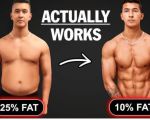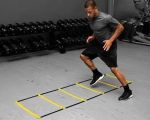The Impact of Sleep on Fitness Performance: Why Rest is Essential for Recovery
As someone who has spent years pushing myself in the gym and on the track, I can tell you that sleep has a far greater impact on fitness performance than many people realize. For a long time, I thought that the key to improving my performance was simply working out harder, lifting heavier weights, and running more miles. But after some trial and error, I learned that without enough rest and recovery, all that effort can go to waste. Sleep plays a crucial role in fitness performance, and understanding how it affects the body is essential for anyone looking to improve their athletic abilities.
1. How Sleep Affects Physical Performance
It wasn’t until I started paying closer attention to my sleep patterns that I began to see the correlation between rest and athletic performance. Sleep is when the body undergoes critical recovery processes. When we sleep, our muscles repair, our immune system strengthens, and our energy stores are replenished. Without adequate sleep, the body can’t perform these essential functions optimally, which ultimately leads to decreased performance and increased risk of injury.
One personal experience that stood out to me was when I started a new workout regimen without focusing on my sleep. For weeks, I felt sluggish during my workouts and couldn’t seem to hit the same intensity levels as before. I realized I was not getting enough sleep, often staying up late to finish work or binge-watching TV shows. After I made a conscious effort to prioritize sleep, I noticed a dramatic improvement in my performance. I had more energy, my muscles felt less fatigued, and I was able to push myself harder in my workouts. This was a turning point in my fitness journey, and it taught me that sleep is as important as training itself.
2. The Role of Sleep in Muscle Recovery
One of the most significant impacts of sleep on fitness performance is its effect on muscle recovery. When you exercise, especially during intense or resistance training, you create tiny tears in your muscle fibers. This is a normal part of the process, but muscle growth and repair occur during the recovery phase, which happens when you sleep. The deep stages of sleep, particularly during non-REM sleep, are crucial for muscle repair and growth.
During this time, the body releases growth hormone, which is responsible for muscle regeneration and recovery. If you’re not getting enough sleep, you’re limiting the amount of growth hormone your body can produce, which means your muscles won’t repair and grow as efficiently. In my own experience, I found that after a good night’s sleep, I felt stronger and less sore the next day. However, on nights when I didn’t sleep well, my muscles felt tight, and I struggled to perform at my best during my next workout.
3. Sleep and Cognitive Function: Mental Clarity for Better Performance
While muscle recovery is critical, cognitive function is just as important when it comes to athletic performance. Sleep has a profound effect on mental clarity, focus, and decision-making abilities. I can’t count the number of times I’ve had poor workouts simply because I wasn’t mentally present. Lack of sleep impairs your ability to focus, coordinate movements, and react quickly—critical components for success in virtually every sport.
For instance, when I was preparing for a 5k race, I didn’t take my sleep seriously and stayed up late before the event. The next morning, I felt mentally sluggish and couldn’t get into my usual rhythm. This experience taught me that cognitive performance—whether it’s running a race or performing a skill-based task—depends heavily on being well-rested. Now, I ensure that I get quality sleep before any important physical activities so that I can be sharp and focused.
4. The Link Between Sleep and Immune Function
Sleep isn’t just about muscle recovery and mental clarity; it’s also closely linked to immune function. Regular, restful sleep helps to strengthen the immune system, making it more effective at fighting off illnesses and infections. As an athlete, the last thing you want is to get sick right when you’re about to reach a fitness milestone. Over the years, I’ve noticed that the more consistent I am with my sleep, the fewer colds and illnesses I encounter.
When you don’t get enough sleep, your immune system becomes weaker, which can make you more susceptible to infections and illnesses. I learned this the hard way after a few weeks of neglecting my sleep during a particularly intense training phase. After a while, I found myself getting sick more often, which severely impacted my training progress. Since I’ve prioritized sleep, I’ve noticed fewer disruptions to my fitness routine due to sickness, and my overall health has improved as well.
5. How Much Sleep Do You Really Need for Optimal Performance?
Now that we know how important sleep is for fitness, the next question is: how much sleep do we actually need? While the amount of sleep required can vary from person to person, most experts agree that adults need between 7 and 9 hours of sleep per night for optimal health and performance. However, athletes or those engaged in intense training may require slightly more—up to 10 hours in some cases.
Personally, I’ve found that 7 to 8 hours of sleep works best for me, but I also pay attention to how my body feels. If I’ve been pushing myself hard during training, I might add an extra hour or two of sleep to recover properly. I’ve also experimented with sleep consistency, and I’ve noticed that having a consistent sleep schedule—going to bed and waking up at the same time every day—helps improve the quality of my sleep and, in turn, my fitness performance.
6. The Impact of Poor Sleep on Performance
On the flip side, poor sleep can have a detrimental effect on fitness performance. I’ve experienced this firsthand when I’ve stayed up late due to work commitments or personal distractions. The next day, I felt sluggish, unmotivated, and couldn’t give my best effort in the gym or during a run. Research has shown that sleep deprivation can reduce reaction time, impair strength, and even decrease endurance—all of which are essential for optimal fitness performance.
Furthermore, lack of sleep can lead to increased levels of cortisol, a stress hormone that can negatively affect muscle growth and recovery. This means that even if you’re working hard in the gym, poor sleep can undermine the results you’re trying to achieve. It also increases the risk of injury, as tired muscles and joints are more prone to strain. Understanding this connection has motivated me to always prioritize sleep, especially during periods of heavy training.
Conclusion
In conclusion, sleep is one of the most powerful factors in improving fitness performance, and it’s often overlooked in favor of more obvious aspects like nutrition and exercise. From muscle recovery and immune function to cognitive performance and mental clarity, sleep impacts virtually every aspect of athletic ability. If you’re serious about improving your fitness, don’t underestimate the importance of rest. Prioritize sleep just as much as your workouts, and you’ll see the results in both your performance and overall health.
If you’re looking for more tips on how to optimize your fitness routine, including advice on sleep and recovery, I recommend checking out resources on fitness and wellness for personalized recommendations and expert advice.








